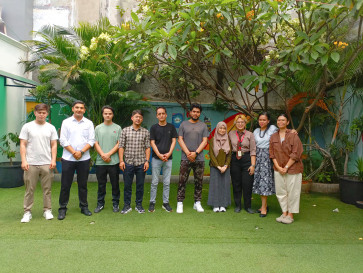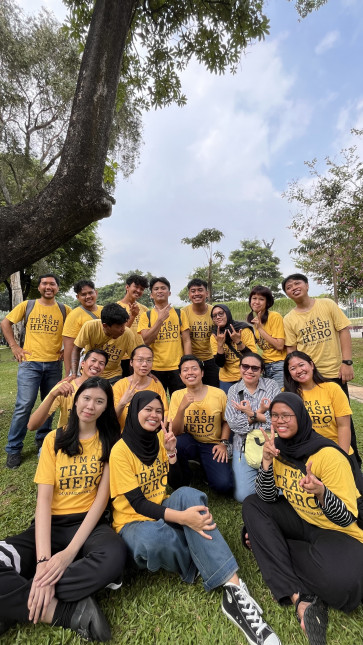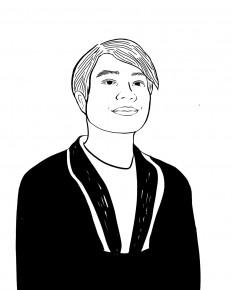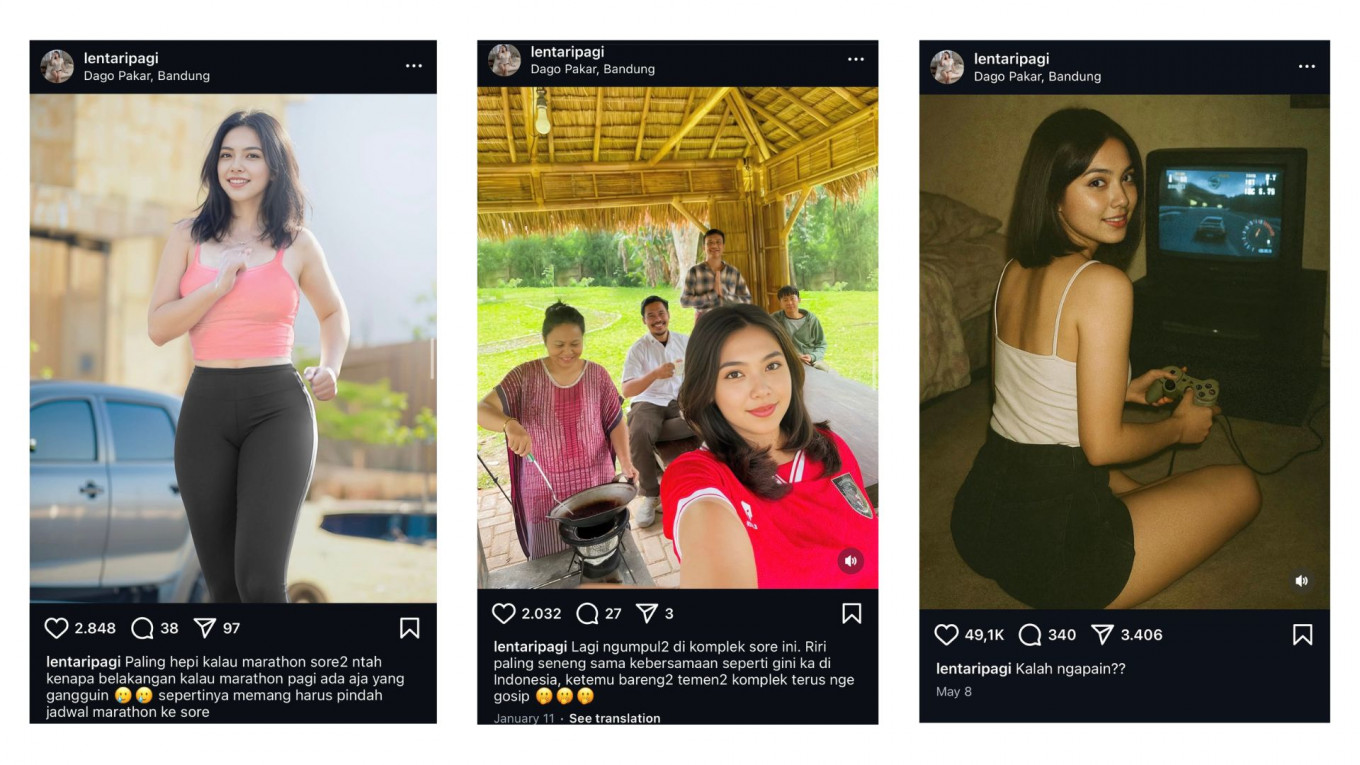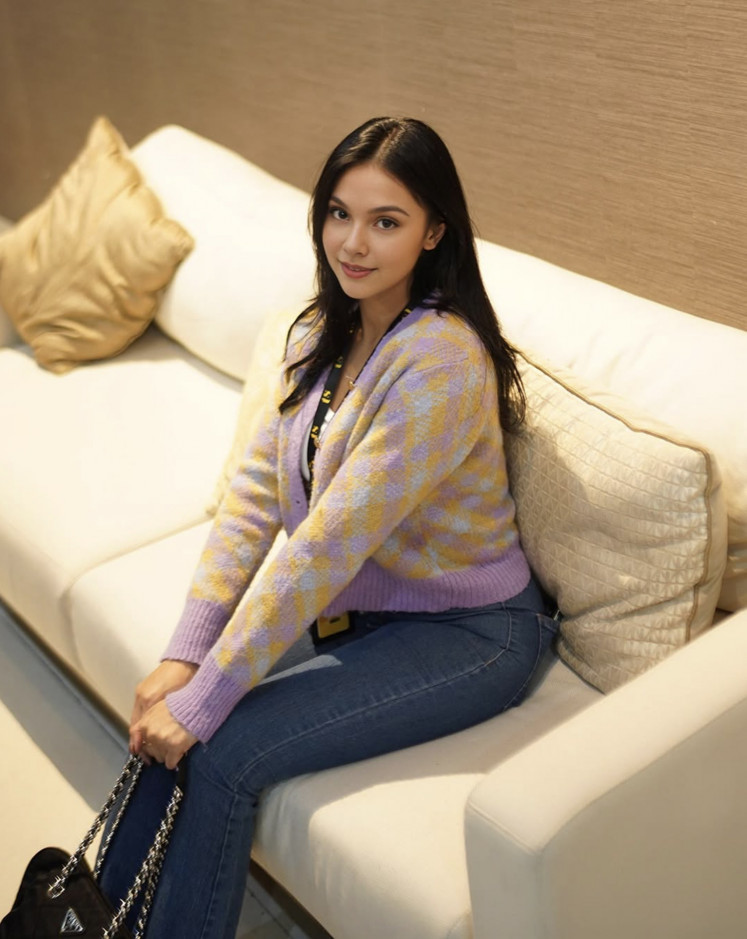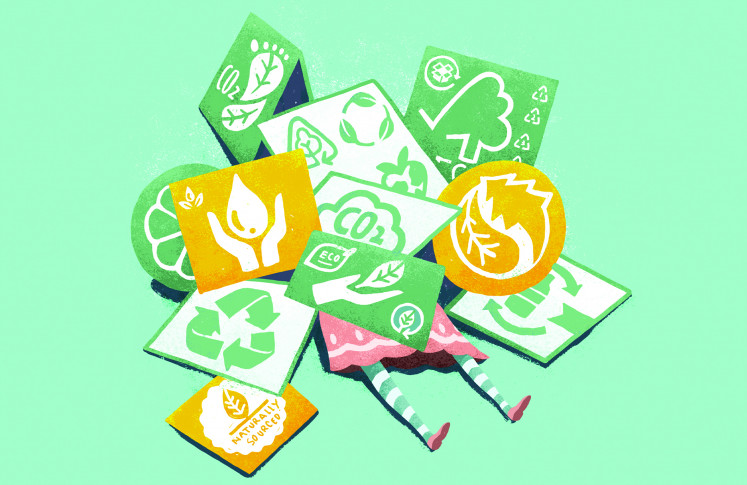When brands look for the perfect influencer—someone who’s relatable, always available and absolutely on-brand—they might start skipping the talent agencies soon and call a creative agency instead.
Specifically, they’re looking for an agency that can build influencers out of thin air like Lentari van Lorainne, Indonesia’s first AI “selebgram”, a local portmanteau for “Instagram celebrity”.
When she first comes across your feed, you might not immediately realize that the dark-haired, fair-skinned avatar isn’t a real person. With over 300,000 followers on Instagram, she’s not simply a computer-generated character: She’s a fully developed persona, a Sundanese-Dutch woman with a passion for cycling and soccer.
Lentari is the creation of Imagine 8, a Jakarta-based creative agency established in 2023 that specializes in creating influencers using generative AI (GenAI) technology.
“To make a compelling figure, we have to add layers to the character,” says Imagine 8 director Aldo.
“This ultimately helps Lentari better connect to an audience as an influencer.”

Thank you!
For signing up to our newsletter.
Please check your email for your newsletter subscription.
“They have constant availability and they can ‘appear’ at multiple events simultaneously.” - Aldo
And that’s a shift we could be seeing more and more. AI won’t be just a tool in the back office: It’s stepping forward to become the face of brands.
Reliable back-end assistant
Behind the scenes, AI has been quietly powering marketing for years. It has helped with things like campaign targeting, customer service chatbots and predictive analytics.
Platforms like TikTok, Shopee and Tokopedia have integrated AI tools into their dashboards for both creators and sellers. For instance, TikTok’s Symphony Assistant helps local creators analyze performance, identify trends and optimize content in real time. It’s like giving every merchant a mini strategy team.
AI also helps with big-picture planning.
“We take data related to a client’s brand identity and target audience. Then, we can make simulations on what platform best matches them, how much they should budget for Meta or YouTube, thanks to AI-powered predictive analysis,” says Budiono, managing director at Accenture.
That translates into faster turnaround.
“Our research shows that it reduces time to market [TTM] for campaigns by around 30 to 40 percent,” Budiono says.
“There’s also one case where a client typically took three days to research for an agency brief. When we did a demo of our
AI-powered process, it took only seconds,” he adds.
While AI has been useful, it has been largely invisible, but that’s changing fast.
Front-facing ambassador
Today’s customer service chatbots are no longer the same frustrating ones we talked to back in 2017.
“There’s going to be an evolution in chatbots so that they reflect a brand’s tone, personality and voice,” says Budiono.
“Instead of basic automated responses, a business’s AI chatbot can converse with a customer and tailor answers based on product information while maintaining brand identity in a natural way,” he explains.
A whopping 91 percent of executives surveyed for Accenture’s Technology Vision 2025 report say that creating a consistent AI personality is now essential to customer interaction.
Meanwhile, 74 percent say AI-powered conversation will be key to collecting contextual data.
Beyond chatbots, we could be seeing a growing number of brands represented by AI avatars like Lentari.
“AI influencers could be the new digital mascots for brands,” says Aldo of Imagine 8.
The appeal is obvious. First is full creative control. AI Influencers offer companies the ability to meticulously craft a campaign that follows their branding to a tee, without any risk of creative differences that might crop with human influencers.
Second is scalability: They can appear anytime, anywhere, even at different events at the same time.
“If a brand wants Lentari at an offline event, we can superimpose her on a body double in a real-life setting,” Aldo explains.
“They have constant availability and they can ‘appear’ at multiple events simultaneously.”
Third is zero risk of public scandals or off-brand behavior.
GenAI advantage
While digital influencers aren’t new, what makes Lentari different is how she was built with GenAI tools that drastically reduce production time and costs.
“Back then, everything was done manually,” Aldo says, recalling his early work with virtual idols.
“Now, we can use AI to generate designs that we then manually touch up or refine. Compared to when Imagine 8 started, AI technology just doesn’t make the same errors in details anymore. So we have more time for conception and designing now.”
Lanna Abigail is a virtual intern created by Imagine 8 for TS Media, an entertainment agency. (Courtesy of @lanna.abigail)
These advancements and advantages have caught the attention of some brands. In the past year alone, Imagine 8 has helped brands create custom characters like TS Media’s AI intern Lanna Abigail and Sprint Asia Technology’s digital brand ambassador Jumienten.
And the agency is just getting started. Imagine 8 sees two major shifts on the horizon.
One is that more brands will want their own Lentari, a custom-built influencer that’s baked into their brand identity from the start.
“It's easier to align a brand with the identity of a new AI influencer at the conceptual stage than to morph our existing characters to fit their vision,” Aldo says.
The other is AI influencers becoming increasingly autonomous.
Right now, Imagine 8 still needs a lot of human input to run TikTok live streams, but in five to 10 years?
“We could see fully self-sufficient live content,” says Aldo.
So, what does all this mean for marketers and influencers?
“What we want to highlight is that through harnessing these AI tools, you can free up human capital for creative and strategic innovations,” Budiono says.
“That’s the overlooked value of AI,” he underlines, “it gives people the bandwidth to do what only humans can.”
Whether we’re ready for it or not, the next face selling us sneakers or skin care products may not be a real-life celebrity at all.
It might be just a bundle of code, but it’ll look good and do its preprogrammed job.
Aqraa Sagir is a writer for The Jakarta Post's Creative Desk. He’s chronically online in the hope it would be a useful asset for the job.






